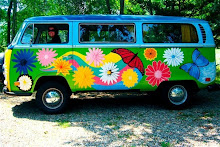"Within the last hundred years, however, and especially in the twentieth century, all this has changed. We expect the papers to be full of news. if there is no news visible to the naked eye, or to the average citizen, we still expect it to be there for the enterprising newsman. The successful reporter is one who can find a story, even if there is no earthquake or assassination or civil war. If he cannot find a story, then he must make one–by the questions he asks of public figures, by the surprising human interest he unfolds from some commonplace events, or by "the news behind the news." if all this fails, then he must give us a "think piece"– an embroidering of well-known facts, pr a speculation about starling things to come.
This change in our attitude toward "news" is not merely a basic fact about the history of American newspapers. it is a symptom of a revolutionary change in our attitude toward what happens in the world, how much of it is new, and surprising, and important. Toward how life can be enlivened, toward our power and the power of those who inform and educate and guide us, to provide synthetic happenings to make up for the lack of spontaneous events. Demanding more than the world can give us, we require that something be fabricated to make up for the world's deficiency. This is only one example for our demand for illusions.
The new kind of synthetic novelty which has flooded our experience I will call "pseudo-events." The common prefix "pseudo" comes from the Greek word meaning false, or intended to deceive." (pg. 8-9)
If you consider Boorstin's idea of "pseudo-event", it's safe to say that reality-TV is a modern form of pseudo-events. TV producers have create situations and try to make them look "real". But we all know that the majority of reality TV shows are staged to create drama. Almost all reality TV show contestants are screened or have to audition. The Real World has auditions across the country to find the 7 people whom they know would clash the most. Then they put them in a house for 3 months and stage (I’m sure) confrontations, confessions and hook-ups. The producers have become masters at creating drama and human conflict. So, the “Real” World is in no way realistic. Based on the definition of pseudo, the Real World is most definitely a pseudo-event. Most of the time it is false and does intend to deceive. The producers want you to believe that everything that happens inside the house is completely unscripted.
Even non-dramatic shows like Cash Cab admit to screening contestants before they enter the cab. So, in a way they "set-up" the show. The majority of the time it's not just random people hopping into a cab and being on a game-show.
The “reality” TV show is not completely realistic. Every channel has a “reality” TV show that has an obsessed audience. Reality TV has become a guilty pleasure that we all indulge in, even if we know it’s not completely realistic. As ridiculous and “unreal” as it gets we still watch it. Most of us don’t even like it, but something draws us in. Why are we drawn into these "events" that we know are completely false? Why have we deemed reality TV, a pseudo-event, in which we know is false, acceptable?

No comments:
Post a Comment